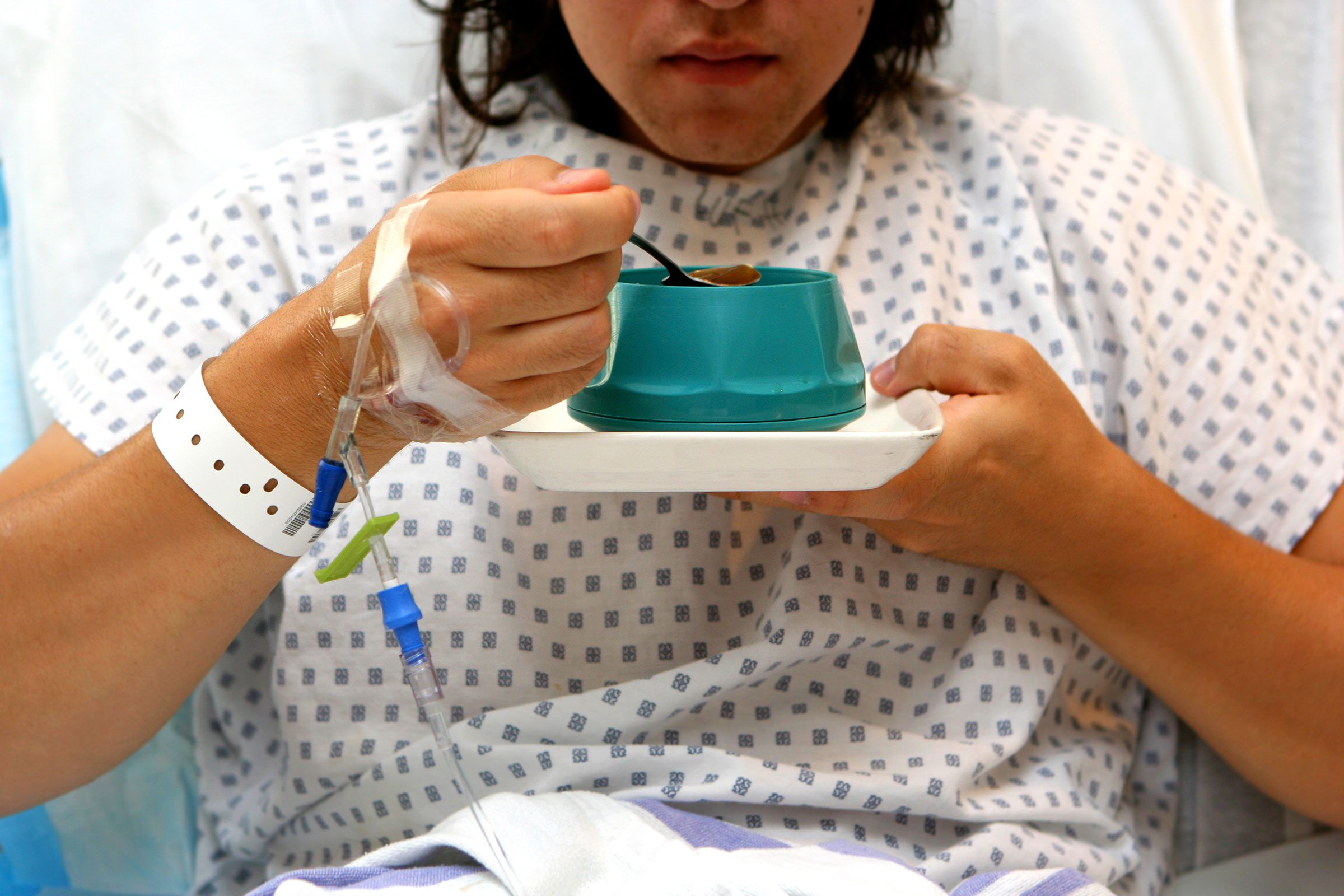Schedule surgery early in the week
On weekends and holidays, hospitals typically have lighter staffing and less experienced doctors and nurses. Some lab tests and other diagnostic services may be unavailable. If you’re having major elective surgery, try to schedule it for early in the week so you won’t be in the hospital over the weekend. —Roy Benaroch, MD, a pediatrician at Pediatric Physicians in Roswell and Alpharetta, GA and the author of A Guide to Getting the Best Healthcare for Your Child. Don’t miss these 12 plastic surgery procedures your insurance might cover.
Go ahead, hydrate before surgery
“Many hospitals say no drinking or eating after midnight the day before your surgery because it’s more convenient for them. But that means patients may show up uncomfortable, dehydrated, and starving, especially for afternoon surgery. The latest American Society of Anesthesiologists guidelines are more nuanced: no fried or fatty foods for eight hours before your surgery and no food at all for six hours. Clear liquids, including water, fruit juices without pulp, soda, Gatorade, and black coffee, may be consumed up to two hours beforehand.” —Cynthia Wong, MD, professor of anesthesia at the University of Iowa Healthcare in Iowa City, IA
Too much rest could impede recovery
“Get up and move. Walk the halls, walk to the cafeteria, go outside. It will help you avoid blood clots, and patients see psychological benefits. One study found that older patients who get out of bed and walk around reduce their stay by an average of 40 hours.” —Roy Benaroch, MD.
































































